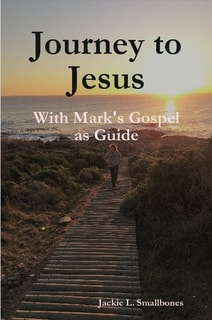|
Prepare to Listen. Awesome is God in his sanctuary.
Prayerfully Read Psalm 68:4-6, 11-12a, 35 4Sing to God, sing praises to his name; lift up a song to him who rides upon the clouds-- his name is the LORD-- be exultant before him. 5Father of orphans and protector of widows is God in his holy habitation. 6God gives the desolate a home to live in; he leads out the prisoners to prosperity, but the rebellious live in a parched land. 11The Lord gives the command; great is the company of the women who bore the tidings: 12‘The kings of the armies, they flee, they flee!’ 35Awesome is God in his sanctuary, the God of Israel; he gives power and strength to his people. Blessed be God! Prayerfully Wonder and Reflect What surprised or challenged you in these few verses? Psalm 68 is a long, somewhat disorganized psalm of exuberant praise for the mighty saving power of the LORD. Handel chose to put one verse to music: “That Lord gave the word, great was the company of the preachers.”[1] I don’t know why Handel chose this verse or why he included it in the section of his Messiah that focuses on Christ’s suffering, death and resurrection. However, since the women (meaning of preachers) sang the tidings of God’s saving victory, it ought to make us reflect on the power of the cross, a major reason for praising God today. Today’s reading begins with a call to sing praise to our Lord who is above all, riding “upon the clouds.” This God seems beyond all human reach and control. And yet, this almighty God is also “father of orphans and protector of widows,” providing a home for the “desolate” (i.e., the homeless and the alien), and leading “out the prisoners to prosperity.” Prisoners stand for all who are oppressed and helpless. The psalm, albeit indirectly points to Jesus whom we know claimed to have come for the vulnerable people the psalmist mentions—orphans, widows, desolate, prisoners.[2] The cross of Jesus proclaims God’s nearness and great love and awesome power. This is why we offer exuberant songs of praise, not merely on our own, but with a great company. What do you think of this image of God? Prayerfully Respond Lord, you are awesome and therefore I bless you, give you all that is your due, joining the company of those who spread the tidings of your great salvation. Amen Live obediently. Bless the Lord. [1] The King James says: “those that published it.” The Hebrew term means women, as in footnote in the NRSV. [2] Jesus in Luke 4:16-19, reading from Isaiah 61:1-2a.
0 Comments
Prepare to Listen. Your throne, O God, is for ever and ever.
Prayerfully Read Hebrews 1:5-9 5For to which of the angels did God ever say, ‘You are my Son; today I have begotten you’? Or again, ‘I will be his Father, and he will be my Son’? 6And again, when he brings the firstborn into the world, he says, ‘Let all God’s angels worship him.’ 7Of the angels he says, ‘He makes his angels winds, and his servants flames of fire.’ 8But of the Son he says, ‘Your throne, O God, is for ever and ever, and the righteous sceptre is the sceptre of your kingdom. 9You have loved righteousness and hated wickedness; therefore God, your God, has anointed you with the oil of gladness beyond your companions.’ Prayerfully Wonder and Reflect What caught your attention in these verses? “Let all the angels of God worship him,” sings the choir in a brief chorus in Handel’s Messiah. The angels worship him because Jesus, God’s Son, is superior to them. To prove this, the writer of Hebrews uses several quotations, mostly from Psalms and reminds us that angels are merely “winds,” “servants” of God. And then comes the climax, the verses Handel should have put to music! “But of the Son he says….” As we were reminded in Psalm 24,[1] Christ is the Sovereign Ruler of the entire universe. Thus, the writer, with a quote from Psalm 45, boldly claims about Jesus, “Your throne, O God, is for ever and ever.” No angel, no human, good or bad, can budge Jesus from the throne God has given him, because God made him sovereign over all creation forever and ever. His rule isn’t waiting for some distant future, nor is he waiting for us to sort the world out and make it possible for him to reign. Christ is already reigning in a reign characterized by a love of righteousness and a hatred of wickedness. When we condone wickedness, especially in our leaders, we’ve backed the wrong one. Righteousness is a complex word that includes uprightness of character, justice for all peoples, not just those who support our causes, and, because it is the righteousness of God, it also includes steadfast love, a love that tenaciously stands in solidarity with those in need, the widow, the orphan, the alien (the most vulnerable in any society). Jesus’ administration, the sceptre with which he rules, is righteous and therefore loving. Let this image of Jesus’ righteous rule guide how you live today. Prayerfully Respond Even angels worship you, Lord Jesus. May I live today in ways that show my worship of you, guided by your righteousness not my own and hatred of wickedness. Amen. Live obediently. Worship the one who reigns forever and ever. [1] See devotion for 2nd Tuesday of Lent. Prepare to Listen. God has spoken to us by Jesus.
Prayerfully Read Hebrews 1:1-4 Long ago God spoke to our ancestors in many and various ways by the prophets, 2but in these last days he has spoken to us by a Son, whom he appointed heir of all things, through whom he also created the worlds. 3He is the reflection of God’s glory and the exact imprint of God’s very being, and he sustains all things by his powerful word. When he had made purification for sins, he sat down at the right hand of the Majesty on high, 4having become as much superior to angels as the name he has inherited is more excellent than theirs. Prayerfully Wonder and Reflect What two words would you choose to describe Jesus? Finding it difficult to choose just two? The writer of Hebrews couldn’t do it. In this letter, that is more sermon than letter, he begins with no less than eight bold claims about Jesus, challenging us to once again, Behold the Lamb of God. He will unpack and support his claims in the rest of his sermon, but today we reflect only on his introduction. For those of us who grew up with good theology about Jesus, it’s easy to think we know these truths with which Hebrews begins. Perhaps we’ve become immune, albeit unwittingly, to the awesome greatness of Jesus that Hebrews highlights here. We should pray with the hymn writer, Katherine Hankey: “Tell me the same old story / When you have cause to fear / That this world’s empty glory is costing me too dear.” A focus on Christ, who is “the reflection of God’s glory and the exact imprint of God’s very being,” will guard us from falling for “this world’s empty glory.” God’s glory is weighty not light, full not empty. It has to do with God’s presence. Because Jesus is “the exact imprint of God” he could claim, “Whoever has seen me has seen the Father” (Jn 14:9). It’s easy for us to take our eyes off Jesus and shut our ears to his words. We need to hear God’s command again and again, “This is my Son, listen to him” (Mk 9:7). When we obey and listen, we’ll avoid being taken in by “this world’s empty glory.” What do you think it means to be the reflection of God’s glory? How can you reflect God’s glory today? Prayerfully Respond Lord guard me from letting this world’s empty glory control my image of you. Guard me against becoming deaf to the powerful word you have spoken. Keep me listening to your Word and faithfully living it. Amen. Live obediently. Listen to the Son and be a reflection of God’s glory. Prepare to Listen. The earth is the Lord’s and all that is in it.
Prayerfully Read Psalm 24:1-10 1The earth is the Lord’s and all that is in it, the world, and those who live in it; 2for he has founded it on the seas, and established it on the rivers. 3Who shall ascend the hill of the LORD? And who shall stand in his holy place? 4Those who have clean hands and pure hearts, who do not lift up their souls to what is false, and do not swear deceitfully. 5They will receive blessing from the LORD, and vindication from the God of their salvation. 6Such is the company of those who seek him, who seek the face of the God of Jacob. 7Lift up your heads, O gates! and be lifted up, O ancient doors! that the King of glory may come in. 8Who is the King of glory? The LORD, strong and mighty, The LORD, mighty in battle. 9Lift up your heads, O gates! and be lifted up, O ancient doors! that the King of glory may come in. 10Who is this King of glory? The LORD of hosts, he is the King of glory. Prayerfully Wonder and Reflect The other day I read that an evangelical pastor said, ‘God was kicked out of the White House; Trump took God with him.’ I said to myself, ‘A god subject to the whim of some human, so weak and small is a god I can’t believe in.’ How about your God? Worth believing in? The God of this psalmist is a God I can believe in. There is nothing small or powerless about his God. The whole psalm is about God’s off-the-chart greatness, beginning with the claim that everything belongs to God who founded, created all things and all peoples. Who can enter this God’s presence, God’s ‘holy hill’? The answer shouldn’t surprise us: “Those who have clean hands and pure hearts, who do not lift up their souls to what is false, and do not swear deceitfully.” The choir in Handel’s Messiah sings the awe-inspiring words of the final stanza (vv. 7-10) that highlight God’s greatness. In poetic language, the poet calls the doors and gates to lift up their heads to let our majestic God in. This is a reference to the temple, but not the brick-and-mortar building in Jerusalem. God’s temple is the universe God created. Lifting up heads is symbolic for standing tall and proud to receive the King of Glory, the one who is strong and mighty, mighty in battle, the Lord of hosts (that is, all armies on earth and heaven). The one John identified as the Lamb of God is also the Lord of Hosts. The one who is gentle and meek is also, at the same time, strong and mighty. No human can kick this Ruler out of any place. God in Christ rules with sovereign power over all and calls us to live holy, obedient lives, submitting fully to his power. Think again about your view of God. Is your God worth believing in? Prayerfully Respond Lord, give me the vision of the psalmist to see you in all your sovereign glory and may it lead me to a more sincere, passionate and obedient way of being in the world you founded. Amen Live obediently. Submit to the Lord to Hosts. Prepare to Listen. The promise came through the righteousness of faith.
Prayerfully Read Romans 4:13-17a 13For the promise that he would inherit the world did not come to Abraham or to his descendants through the law but through the righteousness of faith. 14If it is the adherents of the law who are to be the heirs, faith is null and the promise is void. 15For the law brings wrath; but where there is no law, neither is there violation. 16For this reason it depends on faith, in order that the promise may rest on grace and be guaranteed to all his descendants, not only to the adherents of the law but also to those who share the faith of Abraham (for he is the father of all of us, 17as it is written, ‘I have made you the father of many nations’). Prayerfully Wonder and Reflect The promise to Abraham, Sarah and their descendants wasn’t a promise to justify sinners and pop them into heaven when they die. But that’s what I was taught. How about you? The promise to Abraham, according to Paul, was that “he would inherit the world.” As proof, Paul quoted Genesis: “I have made you the father of many nations. Note, it’s nations plural not singular. This may come as a surprise to some, especially those who, like me, grew up with a heaven-when-I-die mentality; a belief that salvation was this other-worldly thing that we would only fully experience after death. Such a teaching lends itself to Christian nationalism. I grew up with a version of that too. South Africa, that is ‘white’ South Africa was God’s chosen race to save the world. I now live in the U.S. and I hear the same thing. This time it’s conservative America that has been chosen by God to save the world. Both versions are dead wrong, and both versions fail to read Genesis and Romans thoughtfully and honestly. Lent is a time for repentance, changing our minds and living differently. Long ago I changed my mind about God’s promise to Abraham and Sarah, and also to me. I let go my narrow-minded, heaven-when-I-die belief and took on the broad promise of God’s salvation that is for all nations, all creation. A promise that rests, not on anything any one nation does or doesn’t do, not Israel, not S. Africa, not the U.S., but on God’s grace, God’s free and generous bounty that extends to all peoples. And what must we do? Faith. Trust God to bring in salvation God’s way. What challenged your thinking and faith in this passage? Prayerfully Respond God of grace, your reach is global, your salvation is for the now. Increase my faith to live as a global follower of Jesus, welcoming all people from all nations. Amen. Live obediently. Nurture a faith that includes the world. Prepare to Listen. Those who lose their life for my sake, and for the sake of the gospel, will save it.
Prayerfully Read Mark 8:31-38 31Then he began to teach them that the Son of Man must undergo great suffering, and be rejected by the elders, the chief priests, and the scribes, and be killed, and after three days rise again. 32He said all this quite openly. And Peter took him aside and began to rebuke him. 33But turning and looking at his disciples, he rebuked Peter and said, ‘Get behind me, Satan! For you are setting your mind not on divine things but on human things.’ 34He called the crowd with his disciples, and said to them, ‘If any want to become my followers, let them deny themselves and take up their cross and follow me. 35For those who want to save their life will lose it, and those who lose their life for my sake, and for the sake of the gospel, will save it. 36For what will it profit them to gain the whole world and forfeit their life? 37Indeed, what can they give in return for their life? 38Those who are ashamed of me and of my words in this adulterous and sinful generation, of them the Son of Man will also be ashamed when he comes in the glory of his Father with the holy angels.’ Prayerfully Wonder and Reflect What, if anything, shocked or surprised you about Jesus’ demand? Having explained that he’ll suffer and die, Jesus issued his shocking call: “If any want to become my followers, let them deny themselves and take up their cross and follow me.” It’s a disturbing call, given to the crowd--if any. If we want to be Christians, followers of Jesus we must accept the call. Denying yourself is more than giving up something, big or small, during Lent. Take up your cross, is a call to “Come and die.” Jesus knew his disciples would be persecuted and forced to choose between loyalty to Jesus and perhaps death, or saving their own skin. They could deny Jesus and save themselves or remain loyal to Jesus and possibly die. And that’s the way to save yourself, said Jesus. We practice Jesus’ demands of self-denial and cross-bearing when we choose the power of love and reject the love of power; when we live as agents of God’s love in the world standing with one arm reaching out to God and the other arm reaching out to the world, bringing God and the world together in our lives. We practice self-denial and cross-bearing when we choose peace over violence, love over hate, truth over lies, distortions, and conspiracy theories. We live Jesus’ sacrificial way when we build bridges rather than walls, welcome the alien, the outcast, the poor and disenfranchised. Think of times when you are challenged to deny yourself, take up your cross. Do it for Jesus’ sake. Prayerfully Respond Lord Jesus, forgive me when I’ve ignored your demands or presumed they didn’t apply to me. Your way is shocking and demanding, but it’s the only way. Help me live today your way for your sake. Amen. Live obediently. Follow Jesus his way. Prepare to Listen. Thou didst not leave his soul in hell.
Prayerfully Read Psalm 16:7-11 7I bless the LORD who gives me counsel; in the night also my heart instructs me. 8I keep the LORD always before me; because he is at my right hand, I shall not be moved. 9Therefore my heart is glad, and my soul rejoices; my body also rests secure. 10For you do not give me up to Sheol, or let your faithful one see the Pit. 11You show me the path of life. In your presence there is fullness of joy; in your right hand are pleasures for evermore. Prayerfully Wonder and Reflect What caught your attention as you read this psalm? “For you do not give me up to Sheol, or let your faithful one see the Pit.” Sheol and the Pit refer to the place of the dead, and used here metaphorically for dark and difficult times. If you’re familiar with Handel’s Messiah, you know this verse as, “Thou didst not leave his soul in hell.” Changing the pronoun from ‘me’ to ‘his’ distorts the meaning and tempts us to apply the text exclusively to Jesus. The psalmist, however, didn’t have a future person in view. This was about his life, then. He’d been through a major crisis. He’d asked for and received God’s protection (v. 1) and thus could now say, “I bless the LORD.” Whereas many Christians expect God to bless them, the Jews frequently bless the Lord (see Ps 103). Devout Jews bless God multiple times a day. In Psalm 145 the psalmist says she’ll bless God every day and forever (vv. 1-2). They bless the Lord, as in Psalm 16, because they’re grateful God has protected them. At other times, they bless the Lord because God is their Creator and deserves all glory no matter what the circumstances. God never promised that life would turn out the way we want. We will experience difficulties, and need protection, for which we can bless the Lord. So I suggest, as the 2nd week of Lent begins, to practice pausing multiple times a day, and bless the Lord. Begin with “Blessed are you, Lord God, for…” and add whatever you think or feel at that moment. How often do you bless the Lord compared with asking the Lord to bless you? What can you bless God for today? Prayerfully Respond Lord you are blessed for all you are and have done. I know I don’t pause to bless you as often as I should. I ask for your help to remember to do so more often during Lent. Amen. Live obediently. Bless the Lord. Prepare to Listen. Behold and see if there be any sorrow like unto my sorrow.
Prayerfully Read Lamentations 1:11-13 11All her people groan as they search for bread; they trade their treasures for food to revive their strength. Look, O LORD, and see how worthless I have become. 12Is it nothing to you, all you who pass by? Look and see if there is any sorrow like my sorrow, which was brought upon me, which the LORD inflicted on the day of his fierce anger. 13From on high he sent fire; it went deep into my bones; he spread a net for my feet; he turned me back; he has left me stunned, faint all day long. Prayerfully Wonder and Reflect I never paid much attention to these verses, never noticed how disturbing they are. They were applied to Jesus and thus I could ignore them, or so I thought. That may be comforting, but it misses the point. What do you think? The poem is about the real experience, the over-powering grief and loss of the poet. His beloved city, Jerusalem and the temple were in ruins, his people were groaning in futile searches for bread for their starving children. In his helplessness he cried, “Look, O LORD, and see how worthless I have become.” He wonders at the people who pass by, ignoring his pain and suffering, and begs them, “Look and see if there is any sorrow like my sorrow.” He blames the LORD for inflicting the pain on him in his “fierce anger.” It’s not surprising that he and his people were stunned and faint and felt worthless. We may be more privileged today. We’re not groaning for food; we don’t feel worthless. And then we hear Jeremiah say: “Is it nothing to you, all you who pass by?” Is that a rebuke for us, the privileged few? We feel powerless to help, and, afraid to look on more suffering, we walk on by. The poet challenges us to stop and look. Practice the steadfast love of the Lord, that compassionate love that stands in solidarity with those in need. Sometimes, all we can offer is our loving presence, our silent companionship. Yes, these words can be applied to Jesus, who always stands in loving solidarity with all the needy of the world today. Behold, and see them too and, as you do, see Jesus in them. Towards what do you sense the Spirit nudging you today? Prayerfully Respond Lord, give me the courage to practice with you a love that doesn’t pass by the poor and needy. May they experience your loving presence through me. Amen. Live obediently. Look and see. Prepare to Listen. Answer me, O LORD, for your steadfast love is good.
Prayerfully Read Psalm 69:16-21 16Answer me, O LORD, for your steadfast love is good; according to your abundant mercy, turn to me. 17Do not hide your face from your servant, for I am in distress—make haste to answer me. 18Draw near to me, redeem me, set me free because of my enemies. 19You know the insults I receive, and my shame and dishonour; my foes are all known to you. 20Insults have broken my heart, so that I am in despair. I looked for pity, but there was none; and for comforters, but I found none. 21They gave me poison for food, and for my thirst they gave me vinegar to drink. Prayerfully Wonder and Reflect You know complains the pray-er in this long lament psalm. Whether the words are evidence of trust in the God “before whom no creature is hidden”,[1] or frustration that God, who knows, has failed to help the troubled pray-er, is unclear. What do you think? Whatever the pray-er thought, and perhaps it was a bit of both, the complaint is rooted in God’s steadfast love. This is the most frequent term used in the Old Testament to characterize God and how God acts. It’s a translation of the Hebrew hesed, a term rich in meaning and difficult to translate into English. Hesed refers to a love that knows no limits, that stands in solidarity with the one in need, making transformation possible. It’s the love we see in Jesus when he stood in solidarity with all humanity, suffering death on the cross and setting us free to live changed lives. The pray-er knows this about God, but in her present circumstances—insults that have broken her heart, brought her to despair, made worse because no one comforts her—God’s hesed seemed absent, God’s face hidden from her. I know Christianity has always applied these verses to Jesus on the cross. And they certainly fit Jesus' suffering. But they were also real for all those who prayed and still pray this psalm in their own times of struggle and suffering. If you’ve experienced anything that has made you feel abandoned, not only by family and friends but also by God, if you can identify with the psalmist’s complaint, you know something of what Jesus went through on the cross. Like Jesus, like the psalmist, we can honestly lament (complain) because God knows and God’s steadfast love will be experienced yet again. How do you feel about the psalmist’s honest and frank complaint? Prayerfully Respond Lord, you know; you know the good and the bad we experience. For all those in need today, who feel despair with no one to support them, may you come to them and let them know your steadfast love. Amen. Live obediently. Trust God’s steadfast love. [1] Hebrews 4:13. Prepare to Listen. This is the sign of the covenant that I have established between me and all flesh that is on the earth.
Prayerfully Read Genesis 9:8-17 8Then God said to Noah and to his sons with him, 9‘As for me, I am establishing my covenant with you and your descendants after you, 10and with every living creature that is with you, the birds, the domestic animals, and every animal of the earth with you, as many as came out of the ark. 11I establish my covenant with you, that never again shall all flesh be cut off by the waters of a flood, and never again shall there be a flood to destroy the earth.’ 12God said, ‘This is the sign of the covenant that I make between me and you and every living creature that is with you, for all future generations: 13I have set my bow in the clouds, and it shall be a sign of the covenant between me and the earth. 14When I bring clouds over the earth and the bow is seen in the clouds, 15I will remember my covenant that is between me and you and every living creature of all flesh; and the waters shall never again become a flood to destroy all flesh. 16When the bow is in the clouds, I will see it and remember the everlasting covenant between God and every living creature of all flesh that is on the earth.’ 17God said to Noah, ‘This is the sign of the covenant that I have established between me and all flesh that is on the earth.’ Prayerfully Wonder and Reflect If the story is familiar try reading it as if for the first time, with the mind of a beginner. “Never again,” God promised. The story begins when God saw the wickedness of humankind, “that every inclination of the thoughts of their hearts was only evil continually.” God regretted creating humans and resolved to blot out all creation, beginning again with Noah, who found favor in God’s sight.[1] These verses are hard to read. God chose to do this! The Genesis writer refrains from comment, leaving us wondering and perhaps also reeling at the thought God would be so drastic with God’s creation. The flood happened and receded. Only Noah and the inhabitants of the ark survived and walked out onto dry ground. And then God spoke personally to Noah, three times promising, “never again” to destroy the earth, and all that’s in it with flood waters. A rainbow, said God, will be the sign, a promise to all creation and a reminder to God of his vow. What changed so that God promised “never again”? It wasn’t anything to do with humankind or creation or the flood waters. Wickedness wasn’t eradicated; bad things happen and will continue to happen on earth. Nevertheless, God made the decision to never destroy creation again, a decision based on God’s unqualified, free and generous grace. The rainbow will forever be the sign for God to remember, no matter how evil things get; forever a sign for us to remember the good news of God’s gracious decision: “never again.” What newness did the story have for you this time? Prayerfully Respond Lord God, you are a God who remembers your promise because you are gracious and merciful. When things get bad, may I rest again in your covenant to never again destroy all the earth. Amen Live obediently. Remember God’s promise. God remembers. [1] Genesis 6:5-8. |
AuthorWrite something about yourself. No need to be fancy, just an overview. Archives
March 2024
Categories |
- Home
- LIVE THE STORY
- Read Your Bible
- Spiritual Practices
-
Sacred Sagas
- Smallbones Saga 2022
- You just need to be thirsty
- Can these bones live?
- Power the Jesus' Way
- Response to Jan 6
- Binding the Strong Man
- Come, everything is ready
- Help my Unbelief (Mk 9:14-29)
- Off with your shoes
- Psalms and prayer
- Praying in Ugly Times
- The Messiah we Want
- Why I can't vote for Trump
- Worship & Discipleship
- About Me
- Contact
Books Available |
RETREAT OPTIONS |
Let the redeemed of the LORD tell their STORY
(Psalm 107:2 (TNIV)) © 2016 LiveIntoBeauty. All Rights Reserved.
|










 RSS Feed
RSS Feed



